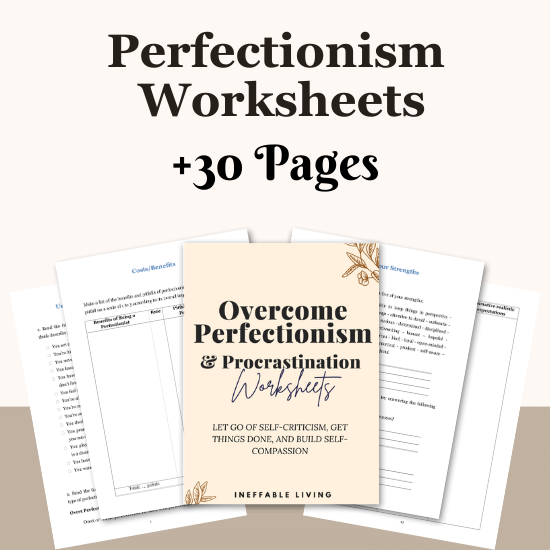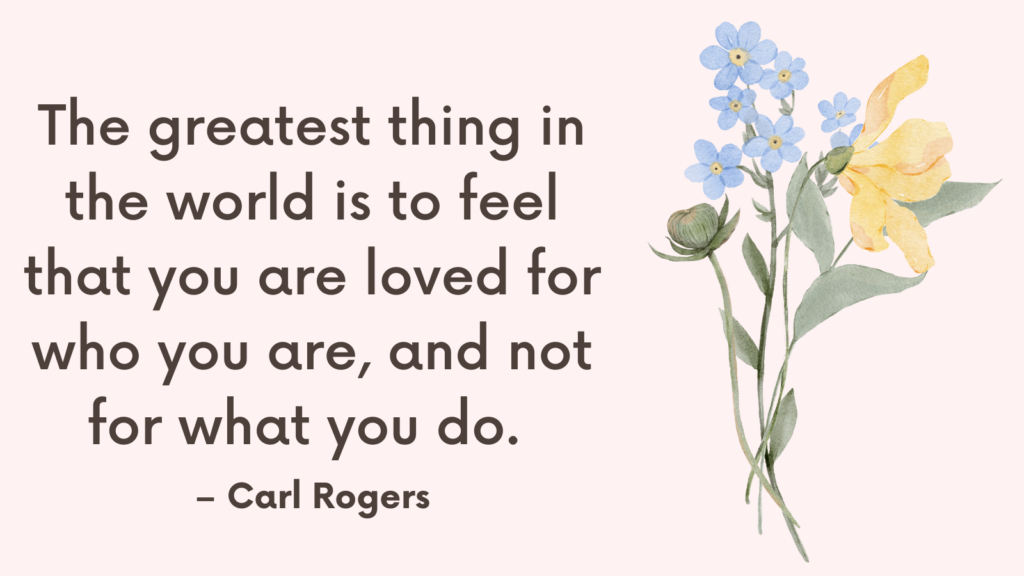In this post, you’re going to learn the difference between perfectionism and excellence.
Perfectionism vs Excellence
Perfectionism
Perfectionism involves setting excessively high standards for oneself, striving for flawlessness, and being overly critical of one’s performance.
Those who struggle with perfectionism often experience intense fear of failure, a preoccupation with avoiding mistakes, and chronic self-doubt.
Perfectionists may equate their worth with external achievements, leading to a persistent sense of dissatisfaction and anxiety.
This mindset can be detrimental to mental well-being, interpersonal relationships, and overall quality of life.
Excellence
On the other hand, excellence is characterized by a commitment to continuous improvement, setting high but realistic standards, and a focus on personal growth and mastery.
Those who pursue excellence seek to produce high-quality work, show dedication to their goals, and embrace learning from both successes and setbacks.
Individuals striving for excellence maintain a healthy balance between ambition and self-compassion, understanding that achievement does not define their inherent worth.
Related: Letting Go of Perfectionism: Best 20 Tips
How To Stop Perfectionism From Ruining Your Life?
1. Recognize the Signs of Perfectionism
Start by recognizing the signs and consequences of perfectionism in your life.
Consider how your pursuit of perfection impacts your thoughts, emotions, behaviors, and relationships.
Common signs of perfectionism include relentless self-criticism, fear of failure, procrastination due to fear of not meeting high standards, and difficulty delegating tasks to others.
2. Challenge Perfectionistic Beliefs
Identify and challenge the underlying beliefs that fuel your perfectionism.
Question the notion that your worth is contingent upon meeting flawless standards, and consider the negative impact of perfectionistic thinking on your mental health and overall well-being.
Cognitive restructuring techniques can help you replace unrealistic and unhelpful beliefs with more balanced and compassionate viewpoints.
Related: Best 38 Brené Brown Perfectionism Quotes
3. Set Realistic Standards
Reevaluate your standards and expectations to make them more attainable and sustainable.
Set specific, achievable goals, and practice self-compassion when faced with setbacks or imperfections.
Embrace the concept of “good enough” and recognize that striving for excellence does not necessitate perfection.
4. Embrace Mistakes as Learning Opportunities
Shift your perspective on mistakes and failures.
Instead of viewing them as reflections of personal inadequacy, recognize them as valuable opportunities for learning, growth, and resilience.
Embracing a growth mindset allows you to approach challenges with a sense of curiosity and openness to improvement.
5. Practice Self-Compassion
Cultivate self-compassion by treating yourself with kindness and understanding, particularly in moments of perceived failure or imperfection.
Acknowledge the common humanity of making mistakes and facing difficulties, and offer yourself the same empathy and support you would give to a friend in similar circumstances.
Related: How To Break The Cycle Of Performance Anxiety?
6. Address Procrastination and Paralysis
Perfectionism can lead to procrastination and an overwhelming fear of starting or completing tasks.
Break large projects into smaller, manageable steps, and set realistic deadlines to prevent feeling paralyzed by the magnitude of the endeavor.
Experiment with time management techniques and reward yourself for making progress, regardless of the outcome.
7. Practice Mindfulness and Acceptance
Engage in mindfulness practices to develop present-moment awareness and nonjudgmental acceptance of your experiences.
Mindfulness can help you observe your perfectionistic tendencies without being consumed by them, allowing for greater emotional flexibility and a reduction in self-critical thoughts.
Related: Top 19 Journal Prompts For Perfectionists
8. Cultivate Balanced Self-Evaluation
Refrain from basing your self-worth solely on external achievements or the validation of others.
Embrace a broader and more balanced self-evaluation that encompasses personal values, strengths, and qualities beyond performance metrics.
Acknowledge and appreciate your efforts and progress, regardless of the outcome.
9. Foster Flexibility and Experimentation
Embrace flexibility and experimentation in your approach to tasks and goals.
Allow room for creativity, exploration, and adaptive problem-solving rather than rigidly adhering to preconceived standards.
Practice tolerating uncertainty and ambiguity as part of the learning process.
Related: Am I A Perfectionist Quiz

Conclusion
Overcoming perfectionism is a gradual process that involves cultivating self-awareness, challenging unhelpful beliefs, and developing adaptive coping mechanisms.
If you find that perfectionism significantly interferes with your daily functioning and quality of life, consider reaching out to a mental health professional for personalized support and guidance.



